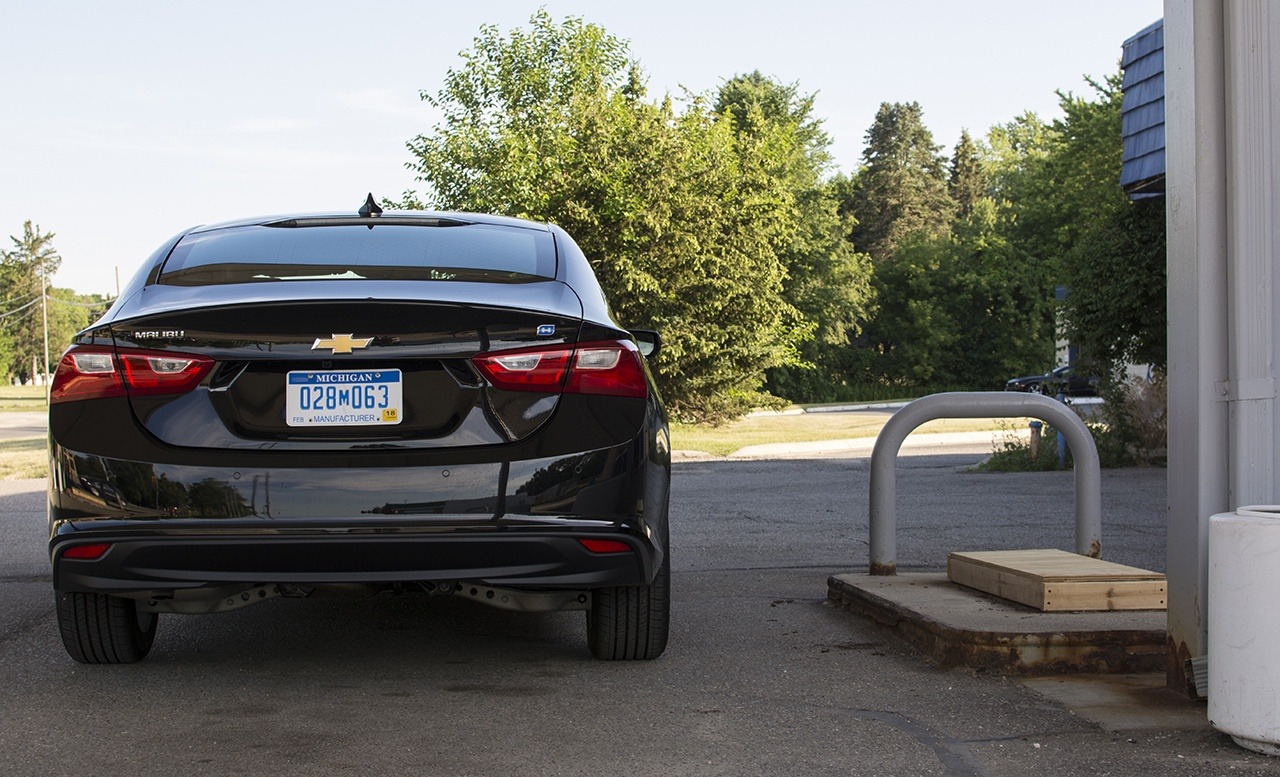Search the Community
Showing results for tags 'fuel economy regulations'.
-

EPA Doubted Claims of New Fuel Economy Regs Would Save Lives
William Maley posted an article in Automotive Industry
When the EPA and NHTSA unveiled the proposal for revised fuel economy standards, there was a key part that brought up a lot of debate: The claim that the new regulations would reduce the number of fatalities and crashes. As we pointed out in our story, there were a number of holes in that argument. It seems we were not the only ones questioning this. Yesterday, the review of the proposal done by the White House's Information and Regulatory Affairs was made public. In it are hundred of pages of correspondence, analysis, and drafts. Bloomberg went through the documents and found that EPA officials were questioning the rationale put forth by NHTSA on reducing crashes. The “proposed standards are detrimental to safety, rather than beneficial,” wrote EPA staff in a memo dated June 18th. Their basis for this was analysis done by the agency after making a number of corrections to a Transportation Department model. It showed that freezing fuel economy standards "would lead to an increase in traffic fatalities and boost the overall fatality rate." The EPA questioned the validity of the Obama administration standards “coincided with an increase in highway fatalities” claim. “What data supports the implication that the standards to date have led to fatality increases?” said the EPA in feedback on June 29th. Also, the EPA questioned NHTSA's model that overestimates the number of old and unsafe vehicles on the road if the new regulations go into effect. How the EPA and NHTSA came to an agreement is unclear at the moment. What it does reveal is that the dispute between the two agencies could affect plans to try and create a comprise that would appease both automakers and California regulators. “These emails are but a fraction of the robust dialogue that occurred during interagency deliberations for the proposed rule. EPA is currently soliciting comments on eight different alternative standards and we look forward to reviewing any new data and information,” said EPA spokesman John Konkus. Irene Gutierrez, an attorney with the Natural Resources Defense Council sees it a bit differently. "...that even the EPA had deep reservations about the bogus safety arguments being pushed by the Department of Transportation. We know that automakers can make cars both more fuel efficient and safer; it’s heartening to find out EPA’s technical experts agree.” Source: Bloomberg- 21 comments
-
- disagreement
- epa
-
(and 2 more)
Tagged with:
-
When the EPA and NHTSA unveiled the proposal for revised fuel economy standards, there was a key part that brought up a lot of debate: The claim that the new regulations would reduce the number of fatalities and crashes. As we pointed out in our story, there were a number of holes in that argument. It seems we were not the only ones questioning this. Yesterday, the review of the proposal done by the White House's Information and Regulatory Affairs was made public. In it are hundred of pages of correspondence, analysis, and drafts. Bloomberg went through the documents and found that EPA officials were questioning the rationale put forth by NHTSA on reducing crashes. The “proposed standards are detrimental to safety, rather than beneficial,” wrote EPA staff in a memo dated June 18th. Their basis for this was analysis done by the agency after making a number of corrections to a Transportation Department model. It showed that freezing fuel economy standards "would lead to an increase in traffic fatalities and boost the overall fatality rate." The EPA questioned the validity of the Obama administration standards “coincided with an increase in highway fatalities” claim. “What data supports the implication that the standards to date have led to fatality increases?” said the EPA in feedback on June 29th. Also, the EPA questioned NHTSA's model that overestimates the number of old and unsafe vehicles on the road if the new regulations go into effect. How the EPA and NHTSA came to an agreement is unclear at the moment. What it does reveal is that the dispute between the two agencies could affect plans to try and create a comprise that would appease both automakers and California regulators. “These emails are but a fraction of the robust dialogue that occurred during interagency deliberations for the proposed rule. EPA is currently soliciting comments on eight different alternative standards and we look forward to reviewing any new data and information,” said EPA spokesman John Konkus. Irene Gutierrez, an attorney with the Natural Resources Defense Council sees it a bit differently. "...that even the EPA had deep reservations about the bogus safety arguments being pushed by the Department of Transportation. We know that automakers can make cars both more fuel efficient and safer; it’s heartening to find out EPA’s technical experts agree.” Source: Bloomberg View full article
- 21 replies
-
- disagreement
- epa
-
(and 2 more)
Tagged with:
-
In a not surprising move, President Donald Trump announced today that his administration will reopen a review into the 2025 fuel economy standards set by the EPA before the end of President Barack Obama's term. “We’re going to work on the CAFE standards so you can make cars in America again. There is no more beautiful sight than an American-made car,” said Trump at an event in the former Willow Run bomber factory in Ypsilanti, Michigan - soon to become a testing ground for autonomous vehicles. "These standards are costly for automakers and the American people. We will work with our partners at DOT to take a fresh look to determine if this approach is realistic. This thorough review will help ensure that this national program is good for consumers and good for the environment," said EPA Administrator Scott Pruitt. In the closing days of President Obama's second term, the EPA announced that it would keep the strict standards that will require automakers to raise their fleetwide fuel economy average to 54.5 mpg by 2025. Automakers cried foul, saying the upcoming standards are costly and out of touch with the current market (i.e. low gas prices and people gobbling up crossovers, pickups, and SUVs). It is expected that the 54.5 mpg average will drop, but no one is sure how much it would drop. Reaction to this announcement has been mixed. Automakers and lobby groups approve of this move as it allows them to focus on building vehicles people want, instead of being pushed into building vehicles that will not sell. "The Trump Administration has created an opportunity for decision-makers to reach a thoughtful and coordinated outcome predicated on the best and most current data," said Mitch Bainwol, chief executive of the AutoAlliance, an industry lobby group that represents a number of automakers including Ford and GM. Other groups are not so pleased with this move. "Today's announcement of backtracking on vehicle standards for model years 2022-2025 puts at risk tens of billions of dollars of fuel savings for consumers and big reductions in tailpipe emissions," said Therese Langer, transportation program director for the American Council for an Energy-Efficient Economy, in a statement. "Any delay in settling efficiency standards introduces uncertainty that will disrupt manufacturers' product planning. What is certain is that technological stagnation is not a recipe for continuing the remarkable success our domestic manufacturers have achieved in recent years." Democratic U.S. Senator Edward Markey of Massachusetts tells Reuters this move could actually hurt consumers. "Filling up their cars and trucks is the energy bill Americans pay most often, but President Trump's roll-back of fuel economy emissions standards means families will end up paying more at the pump," said Markey Source: Automotive News (Subscription Required), Reuters, Roadshow
- 89 comments
-
- fuel economy regulations
- president trump
-
(and 1 more)
Tagged with:
-
In a not surprising move, President Donald Trump announced today that his administration will reopen a review into the 2025 fuel economy standards set by the EPA before the end of President Barack Obama's term. “We’re going to work on the CAFE standards so you can make cars in America again. There is no more beautiful sight than an American-made car,” said Trump at an event in the former Willow Run bomber factory in Ypsilanti, Michigan - soon to become a testing ground for autonomous vehicles. "These standards are costly for automakers and the American people. We will work with our partners at DOT to take a fresh look to determine if this approach is realistic. This thorough review will help ensure that this national program is good for consumers and good for the environment," said EPA Administrator Scott Pruitt. In the closing days of President Obama's second term, the EPA announced that it would keep the strict standards that will require automakers to raise their fleetwide fuel economy average to 54.5 mpg by 2025. Automakers cried foul, saying the upcoming standards are costly and out of touch with the current market (i.e. low gas prices and people gobbling up crossovers, pickups, and SUVs). It is expected that the 54.5 mpg average will drop, but no one is sure how much it would drop. Reaction to this announcement has been mixed. Automakers and lobby groups approve of this move as it allows them to focus on building vehicles people want, instead of being pushed into building vehicles that will not sell. "The Trump Administration has created an opportunity for decision-makers to reach a thoughtful and coordinated outcome predicated on the best and most current data," said Mitch Bainwol, chief executive of the AutoAlliance, an industry lobby group that represents a number of automakers including Ford and GM. Other groups are not so pleased with this move. "Today's announcement of backtracking on vehicle standards for model years 2022-2025 puts at risk tens of billions of dollars of fuel savings for consumers and big reductions in tailpipe emissions," said Therese Langer, transportation program director for the American Council for an Energy-Efficient Economy, in a statement. "Any delay in settling efficiency standards introduces uncertainty that will disrupt manufacturers' product planning. What is certain is that technological stagnation is not a recipe for continuing the remarkable success our domestic manufacturers have achieved in recent years." Democratic U.S. Senator Edward Markey of Massachusetts tells Reuters this move could actually hurt consumers. "Filling up their cars and trucks is the energy bill Americans pay most often, but President Trump's roll-back of fuel economy emissions standards means families will end up paying more at the pump," said Markey Source: Automotive News (Subscription Required), Reuters, Roadshow View full article
- 89 replies
-
- fuel economy regulations
- president trump
-
(and 1 more)
Tagged with:



